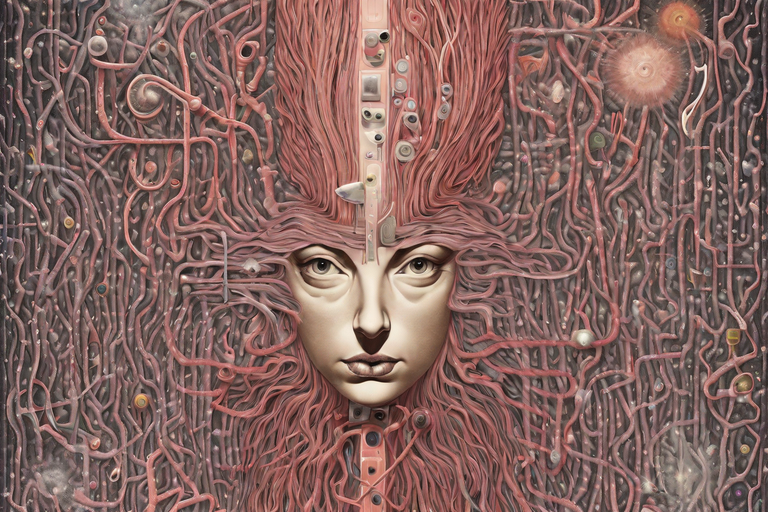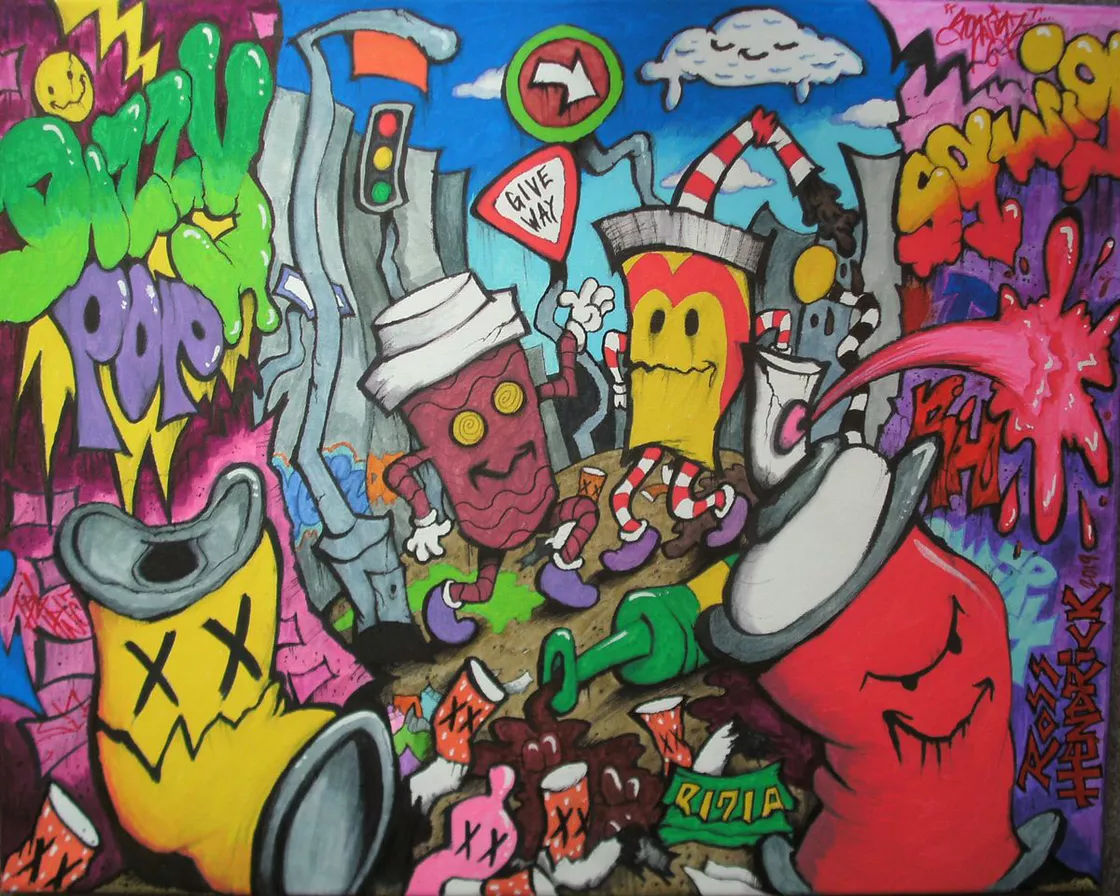This whole business of needing to be validated, needing to ‘prove ourselves’ in some way (or needing to ‘be approved of’) comes from one thing and one thing only – it comes from perceiving ourselves to be an entity that is fundamentally separate from the rest of the universe. This is self-evidently true – if I didn’t perceive myself to be essentially separate from the rest of the universe then what would I have to prove, and to whom? As regards the proposition that we perceive ourselves to be fundamentally separate to (or different from) the rest of the universe, this hardly needs much arguing – this is the defining characteristic of human life, that we have ‘boundaries’ and that these boundaries are of the greatest importance. We are all about the boundaries – inasmuch we relate exclusively to our definitions of things we are relating exclusively to boundaries. The fact that we experience ourselves as being essentially separate from everything around us does not mean that this is ‘how things are in reality’ so much as ‘this is how things seem to be as a result of how we are looking at them’. Boundaries – although they can be vitally important in a pragmatic sense (for example, the covering of skin that keeps our fluids in and everything else out) do not play so much of the key role when it comes to the finer structure of the physical universe. They don’t actually play a key role at all. Everything actually gets very leaky when it comes down to finer structure of the physical universe – it becomes impossible to say where one thing ends and the other begins, which is why we talk in terms of probabilities and fields and not defined cut-off points. If we can’t actually say where the one thing ends and the other begins then obviously there is ‘only the one thing’ and so the whole notion of ‘lots and lots of fundamentally different things’ stops making any sense. So (switching from those physical to the psychological here) whilst it is perfectly true that – for the most part – we experience ourselves as being ‘isolated units’, this is no more than a convenient fiction that has been created for us by the everyday thinking mind. We can’t in any way blame the thinking mind for doing this either since ‘thinking’ necessarily involves having ‘separate things’ to think about! If we were ever to make the experiment of trying to think in the absence of any sort of perception of ‘plurality’, in the absence of the perception of there being such things as ‘boundaries,’ then we would very quickly discover that it just won’t happen. Thought works by comparing the one thing with another (i.e. rational thought works on the basis of ratios) so if there are no mental compartments, no mental dividing lines (and therefore no ‘separate things’) then there is going to be no thinking. That’s the end of thought. This is simply a way of saying that thought is a purely artificial type of thing, with no relationship to anything beyond its own taken-for-granted set of referents.
If we can say this about thought than we can also say that about the self since the self is the product of thought and as such also has no relationship with anything outside of thought’s own taken-for-granted set of reference. My conception of myself can only exist within the artificial context of the thought-created world therefore, and this of course sounds very obvious once we put it like this. As a statement, made within the context of the discussion that is being set out here, we can say that this sounds perfectly straightforward and perfectly ‘obvious’, but to apply what we have just said to the nitty-gritty of our daily lives is another matter entirely since all of our actions and all of our thoughts are based upon the belief that the self is not just an arbitrary construct and that ‘the life of the self’ is not an entirely artificial affair, an affair that is only meaningful in relation to a set of taken-for-granted referents that we never see beyond and which we fundamentally do not understand as having the existence that we perceive them to purely because we have tacitly agreed with ourselves (and with others) that it should do. What does it even mean to say this – that the ‘life’ which we are so very engrossed in (or ‘consumed by’, which might be a better way of putting it) exists only within the terms of a set of referents that we have assumed without knowing that we have assumed anything? Is it even possible for us to get our heads around the bizarreness of such situation? What we are talking about here is a kind of ‘surreal absurdity’ – the type of surreal absurdity that would very painfully explode in our faces were we ever to actually look into it. How could we allow ourselves to be consumed, on a full-time basis, by anything so preposterous? And yet consumed we are because we all go about taking the self-construct and its never-ending issues with the utmost seriousness. ‘Seriousness’ is actually a word that could have been invented specifically to address describe this whole business of being the mind-created self or ego. If it were to be said that the situation which exists outside of this distinctly humourless state of mental fixation which we daily exist in (in relation to the mind-created self and its affairs) is Lila or ‘divine play’, then we can say that the type of life that we are immersed in to the exclusion of anything else can be characterised by the profound absence of both ‘the divine’ and ‘the playful’. What, we might ask, do we get when we take away all that is divine and all that is playful? We get the ‘life’ of the everyday self or ego, which we all take so very seriously (and which we are not about to stop taking so very seriously anytime soon).
We are therefore in the business of ‘taking the absurdity seriously’ and this explains the peculiarly ‘touchy’ nature of the mind-created self or ego. This idea that we have about who we are is very easily upset, our noses are very easily put out of joint in this regard, and this is due to the utterly untenable nature of the ego’s situation. What more dreadful task could we invent for ourselves than the task of ‘defending an absurdity’? On the one hand this task is jinxed from the very onset since the absurdity is by definition completely indefensible, and being committed in the way that we are to the defence of something that cannot be defended is stressful to say the least; it is stressful because we believe, on so very deep a level, that it is so absolutely important that we do successfully defend what cannot be defended. That’s absolutely the bottom line for us – that we do this. To fail at this task is an utterly unthinkable catastrophe; we can’t even let our minds go there – it would be too frightening (too terrifying, in fact) for us to countenance. On the other hand, we have ‘embroiled ourselves in the ridiculous’, which puts us in a truly laughable position and so in addition to the stress and anxiety of believing totally that we have to do something that we could never do, we are making fools of ourselves in a very thorough way. We are making fools of ourselves by devoting all our life energy to a mission that is in essence utterly laughable and that is – into the bargain – utterly unworthy of us. Not only are we stressed and anxious therefore, we also touchy and constantly ready to be offended, and this is a dreadful situation to wish upon ourselves. So when we talk about ‘the need to be validated’ – which is what we started off talking about the beginning of this discussion – we can go so far as to say that all the self cares about is being validated, which is of course not at all how we tend to see things. We can all readily understand that there is this need to be approved of or validated that we all have to some degree or another and this constitutes a legitimate part of human psychology, but it is not part of our understanding that all the mind-created self or ego cares about, at the end of the day, is being validated. What would that say about us, after all?
This is – needless to say – a rhetorical question. It’s a rhetorical question because the answer is perfectly obvious – what this tells us is that the mind-created self or ego is a fiction and that our ‘task’ in life is to make this fiction believable to us. When we are identified with the mind-created fiction then the only thing that matters to us is that we should prove ourselves that we are absolutely not fictional. This ‘need’ is all-consuming, it simply doesn’t allow space for anything else. All the mind-created self cares about is not being a fiction; ‘not being a fiction’ is a redemption that it is perennially looking for, this is the dream that we are all forever chasing, forever longing for. We say that it is good for us to live our lives in pursuit of our dreams, in pursuit of our goals, but when our dreams and goals always come down to the same thing (as they do) – which is proving that the fictional mind is not fictional after all, that it is was ‘real all along’ – how is this supposed to ‘be a good thing’? We unknowingly identify with the construct, with the mind-created fiction, and then we spend our entire lives trying to prove to ourselves this fiction is not a fiction, and this is held up by one and all as being an exemplary way for us to spend for us to spend our lives, a noble and heroic pursuit, and so on and so forth. Drums are beaten and trumpets are blown and medals are handed out for those of us who have done the most to prove what is not true actually is true and this is what our collective endeavour (or society) come down to. It comes down to us all being recruited to the task of proving that what Greg Tucker calls The Master Lie isn’t a lie at all but the sacred and solemn truth. We can talk about specific, identifiable behaviours that we can say are ‘validation seeking’ or ‘approval seeking’ and focus on these everyone to but to do this would be to miss the point, which is – as we have been saying – that all our rational behaviour, whether it is our thinking or the purposeful activity that comes out of our thinking, is geared towards validating the fictional self that we believe ourselves to be. The conditioned or fictional self can’t ever do anything that isn’t secretly geared towards proving that it isn’t a fiction. When in the ‘identified state’ all we can do is ‘self-validate’ – that is the beginning and the end of what we are interested in. That’s the limit of it.
A better way of putting this might be to say that when we have identified with the mind-created self or ego then we automatically ‘create a world for ourselves’ in this world exists for the sole purpose of validating ‘who we think we are’. We are living in a ‘World of Confirmation’, in other words, and this world is made up of the concretization (or reification) of our unexamined assumptions. This is the ‘Projected World‘ – the world that we project without knowing that we are rejecting anything, the world that we create without knowing that we are creating anything. We imagine that we are ‘finding’ or ‘discovering’ the world, whereas the truth is (and always was) implicit in the assumptions that we have made without ever having the slightest awareness that there was any ‘assuming’ going on. One way of talking about this world is therefore to say that it is the world that is automatically generated just as soon as we start thinking about anything (since thought cannot occur unless we first ‘assume a context’); the other way of talking about it (which isn’t actually saying anything different) is that it is the world that exists for the unacknowledged purpose of validating the self that is inhabiting it. Naturally, this tailor-made world doesn’t have the overtly-stated function of ‘validating the mind-created self’ – that wouldn’t be in the least bit validating, quite the opposite in fact – but this is its covert function, its ‘unspoken’ function. The other way of putting this is to say that the World of Confirmation is a trap. It’s a trap because no matter which way we turn the conditioned self that we have identified with gets to be confirmed. Once we start playing the game then we can’t stop. There is nothing we can do or think that won’t confirm the reality of the self for us and that makes the World of Confirmation the most effective trap there ever was.
If we are to be free from this super-effective trap then something has to change with regard to our most basic motivation therefore; a radically different type of motivation has to come into play – one that has nothing to do with who we think we are. The ‘extrinsic self’ – the self we think we are – only has one motivation, as we have indicated, and that is to find validation. Our motivation is directed to ‘achieving the impossible’, in other words. This is the same as saying that all purposeful activity – without any exception at all – serves the covert or ‘never-to-be-mentioned’ function of self-validation. I say that I am planning to achieve Goal A for the sake of that goal, because that goal has value in itself in and of itself, but really I’m seeking to reaffirm the existence of the one who plans to attain the goal, the one who strives to attain the goal, the one either glories in having accomplished it, or despairs as a result of not having done so. This is ‘The Prison of Purposefulness‘. We imagine that we can utilise purposefulness and willed action to free ourselves from all restrictive or denying situations and we hold on tightly to this hope, but we are ‘utilising’ the very thing that is trapping us, restricting us, denying us. We are placing our hope in the prison itself! A whole new level of subtlety is needed if we are to see the nature of the predicament which we are in, a whole new level of subtlety the existence of which we have never suspected. I perceive that there is a need for me to escape from the predicament that I’m in, but the ‘me’ which I feel needs to escape (or be free) is the very predicament which I want to be free from. Thought can never reveal the true nature of the trap that we are in because thought itself is the trap. Thought is my ‘go to’ and yet this is what lies at the root of the ‘problem’. Thought is at the root of the problem because it is thought that creates the notion of a separate isolated self, the entity which exists in contrast to the rest of the universe. It is thought that does the contrasting! There wouldn’t be any contrasting going on if it were not for thought and it is ‘contrasting’ that creates the sense of ‘me’ that I am imprisoned in. Thought proceeds via its categories and the ‘me’ is just one of these categories – ‘me’ is a made a category of thought and I am charging ahead in life as if that arbitrary, made-up category were a real thing…





